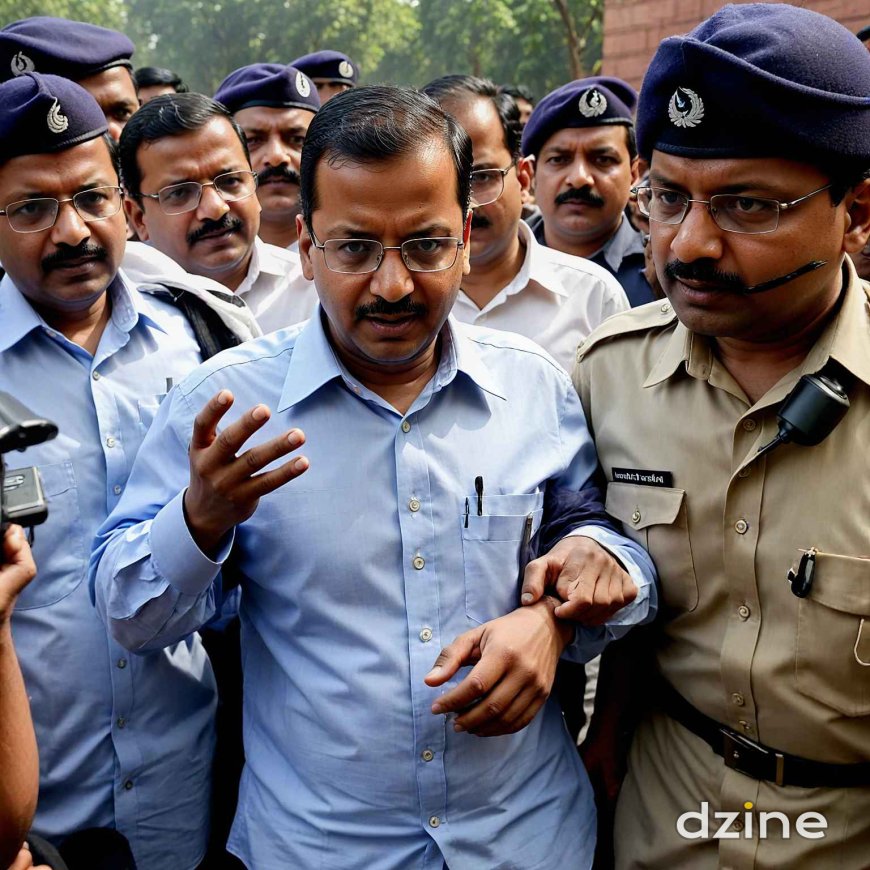Supreme Court Grants Bail to Delhi CM Kejriwal in Liquor Policy Case
The Supreme Court has granted regular bail to Delhi CM Arvind Kejriwal in the Delhi Liquor Policy case, imposing conditions that restrict his duties and public comments. AAP hailed the decision but demanded Home Minister Amit Shah's resignation over CBI's role. The court questioned the CBI's motives for arresting Kejriwal after a long delay, suggesting political interference.

Supreme Court Grants Bail to Delhi CM Arvind Kejriwal in Liquor Policy Case
In a significant development, the Supreme Court of India has granted bail to Delhi Chief Minister Arvind Kejriwal, relieving the Aam Aadmi Party (AAP) leader after six months of legal challenges. This decision comes in the ongoing Delhi Liquor Policy case, in which Kejriwal had been arrested earlier this year. Just so you know, the bail initially granted was only interim and valid for a short period. However, the latest ruling by the Supreme Court provides regular bail, which is a crucial update in the case.
Arrest and Interim Bail
Arvind Kejriwal was initially arrested in March 2024 under the Delhi Liquor Policy case by the Enforcement Directorate (ED) on money laundering charges. Despite securing bail from the ED, Kejriwal was then re-arrested by the Central Bureau of Investigation (CBI) in June 2024 on charges of corruption related to the same case. This led to a complex legal scenario where Kejriwal remained in jail despite obtaining bail from the ED, as the CBI had taken over the case.
Supreme Court's Decision and Conditions for Bail
After multiple hearings, a bench of Justice Surya Kant and Justice Ujjal Bhuyan concluded the hearing on September 4, 2024, and granted Kejriwal regular bail. While this was a relief for the Delhi Chief Minister, the Supreme Court imposed several conditions along with the bail. Some of these conditions include:
- Kejriwal must sign a bond of ₹1 lakh to ensure his presence during court hearings.
- He is prohibited from commenting publicly on the Delhi Liquor Policy case.
- He is required to be present at all future court hearings related to the trial.
- Most notably, Kejriwal cannot enter the Delhi Secretariat or perform official duties as the Chief Minister while the trial is ongoing.
Political Repercussions
The Supreme Court’s ruling has sparked political reactions, especially from the Aam Aadmi Party. Senior AAP leader Manish Sisodia celebrated the bail as a victory for truth, tweeting that it was a win against lies and conspiracies. However, AAP has also called for the resignation of Home Minister Amit Shah, citing a Supreme Court remark that indirectly criticised the role of investigative agencies like the CBI in handling politically sensitive cases.
Criticism of the CBI's Role
One of the most significant aspects of the Supreme Court's ruling was the critique of the CBI’s timing in arresting Kejriwal. The court questioned why the agency, which had been inactive in the case for nearly two years, suddenly arrested Kejriwal after the ED granted him bail. Although the court did not find procedural violations in the CBI’s actions, it raised concerns about the motive behind the arrest, suggesting a politically motivated move.
The Supreme Court also referred to an earlier description of the CBI as a "caged parrot," implying that the agency may still be perceived as acting under political influence. While the court did not explicitly repeat this phrase, it emphasised that the CBI needs to correct public perception to ensure faith in democratic institutions.
Future Implications
While Kejriwal's bail is a temporary relief, the trial in the Delhi Liquor Policy case is expected to be a prolonged affair. The Supreme Court highlighted that the trial is not going to conclude shortly, thus justifying the bail. It reiterated that "bail is the rule, jail is the exception," emphasising that a person cannot be held indefinitely without being proven guilty.
As the case progresses, the restrictions imposed on Kejriwal's role as Chief Minister may pose challenges to the functioning of the Delhi government. Despite being barred from official duties, Kejriwal remains the Chief Minister of Delhi, raising questions about governance in the state during this period.
Conclusion
The Supreme Court's decision to grant bail to Arvind Kejriwal marks a pivotal moment in the Delhi Liquor Policy case. While Kejriwal has been granted relief, the stringent conditions attached to his bail and the ongoing trial are likely to have both legal and political ramifications. As the case continues, it remains to be seen how it will affect Kejriwal's political career and the functioning of the Delhi government.













